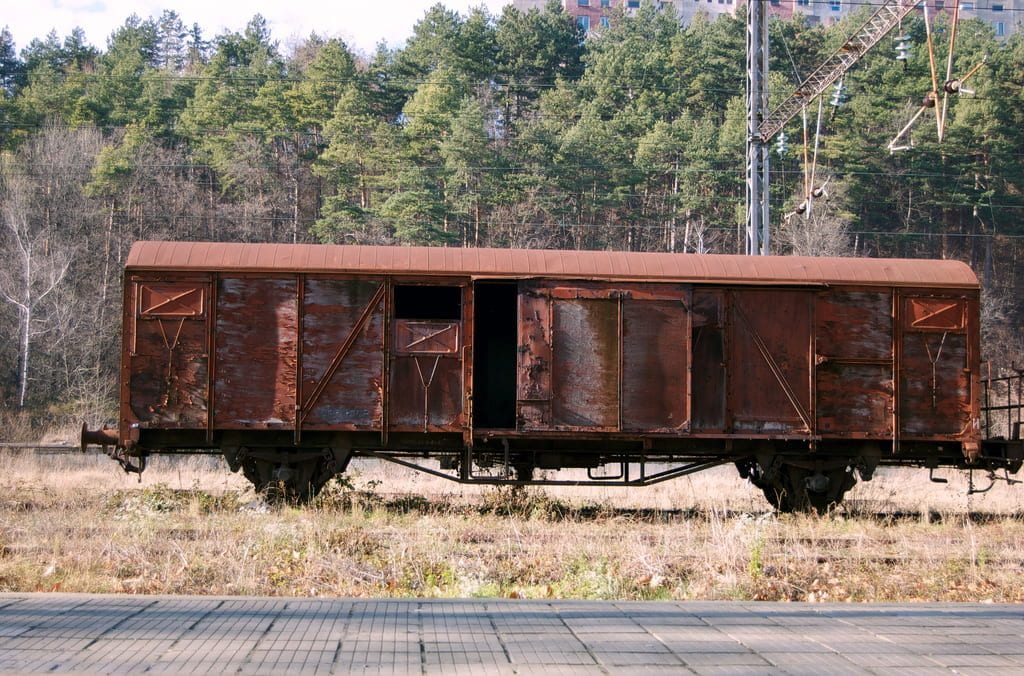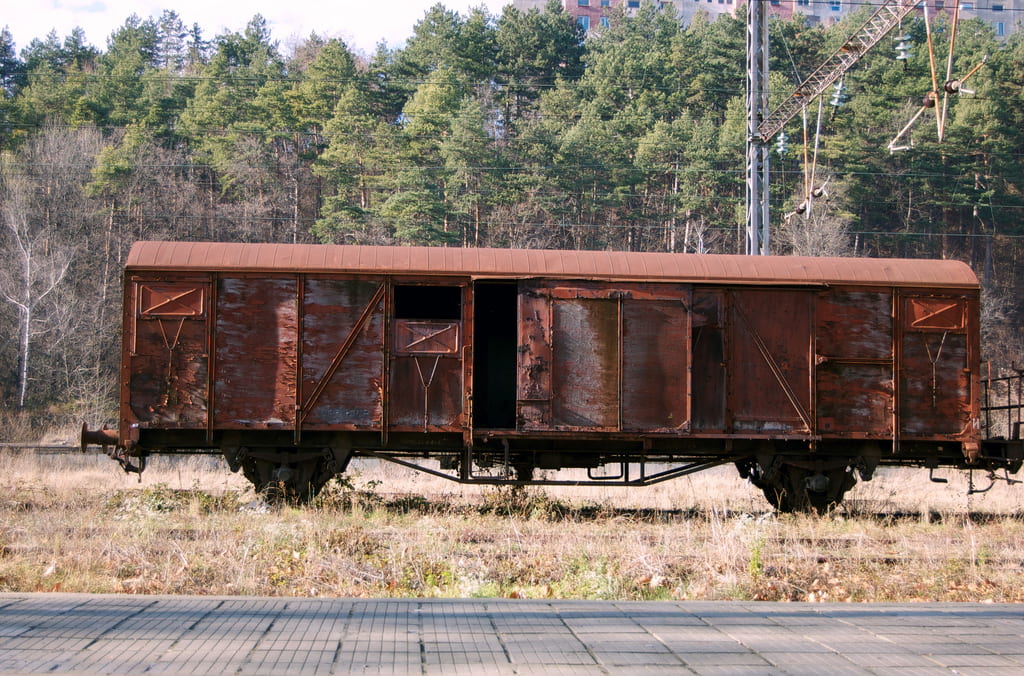
“I had everything until the murderer came,” Riva Hirsch begins, clutching a microphone between two pale hands. “We weren’t rich, but we had a ball and a doll and a dog… There was no discrimination. We loved.”
Sitting in a sterile events space around circular tables, we watch as a map appears on the projector screen to helpfully show us exactly where seven-year-old Riva lived before that day: an area of Ukraine that used to be Russia. She isn’t sure where exactly she was taken. “A better place,” was all the Nazis told her as she boarded a train overflowing with corpses.
“Did you see any towns on the train ride?” the moderator of the talk asks.
“Piles and piles of dead bodies–that I saw. Children. Grown-ups. Babies. But not towns.”
A microphone fails, its battery dead. Some shuffling and chuckling, then Riva’s microphone is handed to the other guest speaker, Josephine Bolling McCall, from Lowndes County, Alabama. “Bloody Lowndes”, it used to be called because of all the murders.
“We thought someone was killing cows,” she tells us, describing the sound of her father’s lynching. His children found him lying in a ditch with his eyes open, shot several times. “The definition of lynching is not about the noose around your neck. It’s about the group of people. At the time, three people made a lynching”
The room releases a deep hum of a surprise.
Her father was rich for a black man, owning a storefront, some land, and several shipping trucks. The night of his murder, Josephine’s brother scrawled down the car tag number of the white men he saw driving away in the dirt outside their store. “The sheriff wasn’t interested. Lowndes County planned my father’s murder and planned to make it look like it wasn’t a lynching, because the county would be held responsible. Most of the blacks were afraid to talk. There was no mercy there.”
The two women trade their lone microphone back and forth, standing tall when it is their turn to speak with the kind of straight-backed poise that has been lost over the generations. Both look dressed for a nice evening out, their hair in big, loose curls around their shoulders, Riva’s white and Josephine’s dark brown, like their skin. Riva talks fast, with an Eastern European accent, her voice booming through the sedate hall. Josephine, by contrast, talks Southern slow and soft enough that we lean forward to catch her words. Riva speaks as if the horrors she witnessed happened only yesterday. Josephine speaks as if they happen to her every day.
“I was lying more dead than alive,” Riva says of her condition when the German man who smuggled her out of the camp to a convent. “Me as a little Jewish girl, I had never seen a nun. But I survived through them.”
“I decided it was time to get some recognition,” Josephine told us about publishing a book about her search to discover what really happened to her father. “They made my book required reading at Northeastern University.”
The moderator asks them what one lesson would they want us to take away.
“The intention was to terrorize,” Josephine says. “Terrorism is what they got… We must continue the discussion, but as it says in Hebrews 13:1, ‘Let brotherly love continue’.”
“Make sure to educate our students,” Riva answers, her voice reaching a fever pitch. “Because the future is in your hands to let the world never, ever let it happen again.”
The room is silent when her words stop ringing through the high ceiling, but in our ears, the shouts of Charlottesville echo. We clap to drown them out.
Mary Elizabeth Chambliss is a graduate English student specializing in Creative Writing at the University of Alabama at Birmingham, as well as a CRM Administrator in UAB’s Enrollment Operations. She graduated from Lehigh University with a Bachelor’s in Cultural Anthropology in 2015.

